And we talked in that feeling of satisfaction, from "Vinh, the city of dawn" to the song collection he composed that was recently honored with the State Prize...
Notes from the heart

Even though he has reached the age of 90, when he mentions the old notes, he still feels excited as if he is announcing them to the public for the first time. Those are the notes from the youthful chest of a young man from Dien Hong, when he was still chirping with his mother to the city.
He said that he felt the music from his mother's Kieu verses, so it can be said that Le Ham's music originated from the lullabies that he heard throughout his childhood. His love for music also took flight from watching performances at the makeshift stage in the village. At that time, the young Ham knew how to make a small flute from the stem of a papaya leaf to play the melodies he learned somewhere on the village's loudspeaker...

It was not until his military cadet days, from 1948 to 1951, that Le Ham was able to study music formally. With an outstanding talent for the flute, he was determined to pursue a musical career and became an artist of the 320th Division. From 1955 to 1961, he studied at the Vietnam Music School. He said that his graduation piece was a 6-movement choir and was highly appreciated, but what made him happiest was finding a vast future in that wonderful musical sky.
After graduating, he was sent to the Vinh Linh border to serve our soldiers on the northern bank of the Ben Hai River. “Between the two sides of the front line, the fragile limit of the sound of peace is sometimes just a musical note. And no matter who we are or which side we are on, we are easily moved by a sound,” he said.
In 1964, Le Ham was assigned to teach at the Central School of Music and Art, but soon after, Ha Tinh province invited him to become the Head of the Ha Tinh Art Troupe. His musical path was associated with positions related to the artistic environment. That was also the opportunity, the source of his spontaneous but sparkling compositions, signaling a brilliant journey with music in the future.
Musician Le Ham recalled that he returned to Ha Tinh during the fierce and extremely difficult war years, but he was able to devote himself to the battlefields with his brothers and sisters. It was during those days that he created the songs “Gai Song La”, “Nhung Nguoi Chien Si Ben Pha”, “Chien Cong Ha Tinh Van Vang”… Later, in 1964, “Gai Song La” - one of the songs with a strong Vi Giam style, which rarely appeared in his song collections, was broadcast on Voice of Vietnam Radio. The song not only made many people cry, but even he... cried.
“The whole sky of the homeland, the whole nation turned to the battlefield, waiting for the day of total victory. Everyone wanted to contribute their strength to fight the Americans. The song spoke for the heart, like a picture highlighting the love of each Vietnamese child” - musician Le Ham said. His song has the image of girls “secretly carrying their children” to clear the road, they are the brave and courageous Soviet women: “Soviet girls are braver than boys”. “Girls of the La River” later became one of the songs in the collection of songs for which he was honored to receive the State Prize.
Growing up with the folk songs, imbued with the national spirit, musician Le Ham also made great contributions in the field work, collecting and finding ancient melodies for the folk songs of Nghe Tinh. Later, he was the editor-in-chief of the book “Folk Music of Nghe An” which was highly appreciated by the music world.
In 1970, when he had collected 30 Ho, Vi, and Giam songs, the Ha Tinh Literature and Arts Association published a collection of Nghe folk songs. It became a familiar performance of art troupes in the two provinces of Nghe An and Ha Tinh. Ho songs such as “Ho boi thuyen” or songs developed from Vi melodies were rewritten by Le Ham, and many generations of folk singers later thought that they were the original melodies of Vi and Giam folk songs.
When talking about Le Ham, people often talk about a musician who is carefree and generous when writing music, and also the way he brings his works to life. “It’s strange, there are works that are conceived for a month but no one sings them, they are not famous at all, even though I think they are good. However, the songs are only sung in a moment of emotion, and then later the words and notes surge and are loved and warmly welcomed by the public” – musician Le Ham said. Those are “The Mother of Sen Village”, “Vinh, the City of Dawn”, “Girls of La River”, “Going to the Sen Village Festival”…
“In the past, when composing, musicians were not paid royalties. Even when the song was used, I was gratefully invited to eat a bowl of pho. That was also the extremely simple happiness of a musician!” - Le Ham said with a smile.
The Reward of Life
When mentioning “Vinh, the city of dawn”, people immediately think of the theme song of Vinh City Radio and Television Station, think of the song “City Song” of Vinh - a young, vibrant and affectionate city. Musician Le Ham said that he has a lot of fate with Vinh, he truly considers this city as his hometown. No matter where he goes, to him, returning to Vinh means returning to his hometown.

In the song, there is a line: “I welcome you back to my hometown Thanh Vinh” - that is the invitation of a lyrical character in the song but appears in a verse in real life. “That was the time I was returning from Ha Tinh, a young female volunteer worker asked me to hitchhike a part of the way, even though it was only a short distance, we talked a lot. When turning to her house, she also said: “Tomorrow I will take you back to Thanh Vinh!” That was also the inspiration for the musician when writing this song.
“Vinh, the city of dawn” has a lyrical, poignant melody, but is also bustling and passionate, just like the way this musician feels about Vinh. And then, for a long time after the song has had its own life, people still come to him just to sing with him, to satisfy their passion for contemplating the beauty of Vinh, at the place where this song full of Vinh’s essence was born.
Another song that musician Le Ham is most fond of about the beloved President Ho Chi Minh is the song “The Mother of Lotus Village”. The song has very simple, rustic but great and immense verses: “Mother is silent in the midst of life like that/Her thin shoulders carry the heavy burden of the slippery road/That mother gave birth to her child in the night sky/Amidst the black mud, the lotus flower blooms”.
Le Ham said that he wrote these lyrics and melodies with all his heart, with love and respect, with boundless admiration for that Vietnamese mother. The song was later performed many times in festivals and it seemed to last forever, whenever there was a festival, there was “Mother of Sen Village”, whenever there was a solemn ceremony, the song “Mother of Sen Village, Mother of Vietnam has given glory to the lives of her children…” resounded proudly.
The song collection honored at the State Prize for Literature and Arts award ceremony also includes the choir "Vietnam in my heart", "Tieng drum dem trang", "Ha Tinh que huong ta"... It can be said that each song is carefully selected by musician Le Ham, each word and each note, so that listeners can feel both familiar and close, as well as proud and loving. "I have lived my whole life in music, immersed myself in it to see how meaningful this life is, how worth living." - musician Le Ham shared.
More than 200 songs, including songs for children that have been selected for textbooks, to suites for choirs, but for him, "Vinh, Thanh Pho Binh Minh", "Nguoi Me Lang Sen" or "Gai Song La" are sung and remembered by many generations, which is a great happiness for a musician. "When a song is famous, the musician gets to live with it, be remembered and mentioned by name. That is the reward of life, something we still owe to life a lot" - musician Le Ham confided.
Source











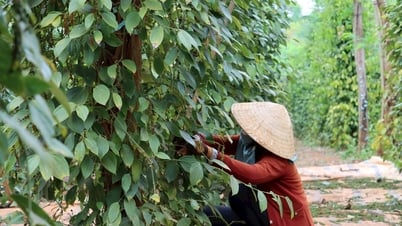
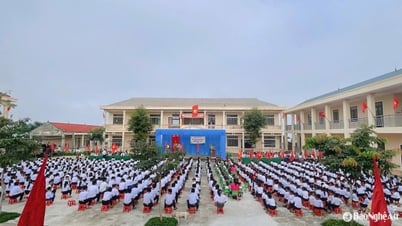










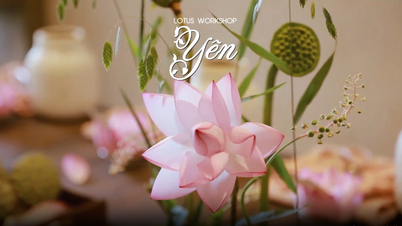






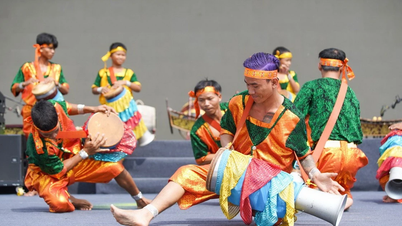


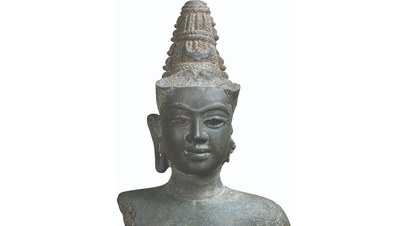

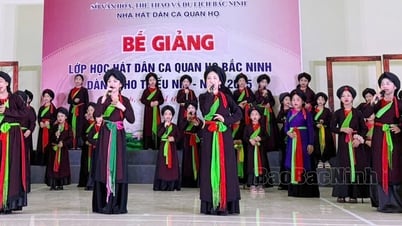



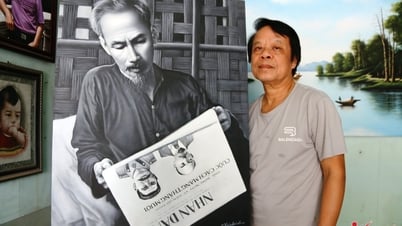




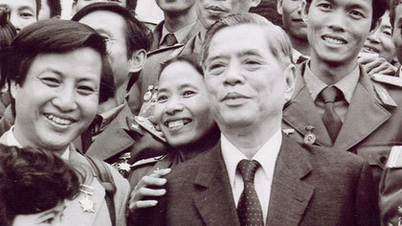










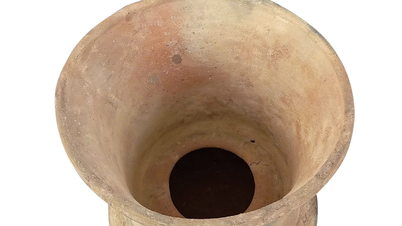



![[Infographic] Circular guiding the functions, tasks and powers of the provincial Department of Culture, Sports and Tourism and the commune-level Department of Culture and Social Affairs](https://vphoto.vietnam.vn/thumb/402x226/vietnam/resource/IMAGE/2025/6/29/877f24989bb946358f33a80e4a4f4ef5)


























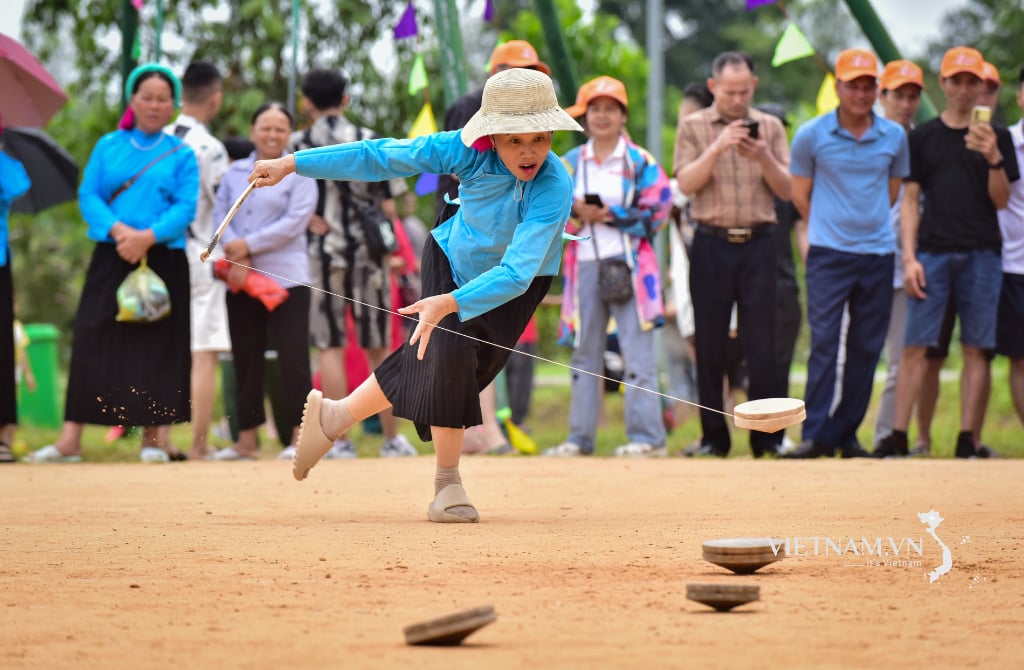

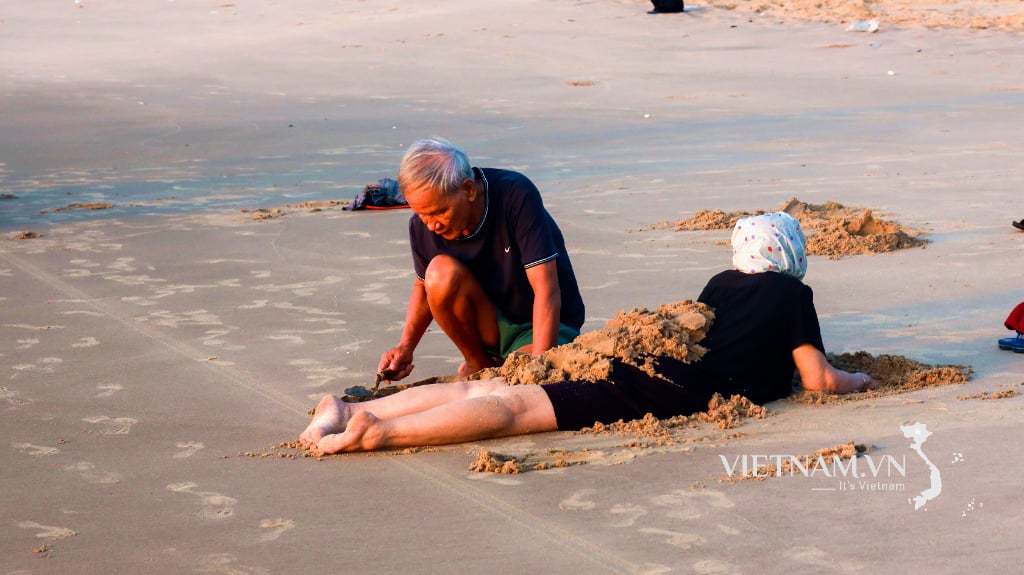

Comment (0)